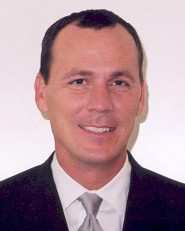Let me begin by thanking Singapore’s Ministry of
Transport, the Civil Aviation Authority of Singapore and the
International Air Transport Association for the invitation.
It’s an honor to participate on such a distinguished panel of
aviation experts.
If there’s one thing you can say about aviation,
it’s that we’re an industry ready to step up to a
challenge. We always have been. In some cases, these challenges are
unique to our own domestic systems. Other challenges call on the
global aviation community to act together. Today, I would like to
talk to you on a global scale about one of our biggest global
challenges — reducing aviation greenhouse gas emissions.
Just as we’ve always been willing to step up to
challenges, we also share a good track record in finding solutions.
This one won’t be easy. However, the answers are out there,
and I know we can work collectively to find them.
What’s most important is that we work together and search
for answers that will promote continued growth in our industry. We
can do this if we focus on technologies instead of taxes; new
procedures, not penalties; and unified solutions — nothing
unilateral.

We’ve already demonstrated that we can tackle this problem
in a real growth environment. In the United States, greenhouse gas
emissions generated by the U.S. aviation system have actually
dropped by about 4 percent since the year 2000. At the same time,
airlines moved 12 percent more passengers and 22 percent more
freight.
Rest assured, we’re not stopping there. We need to do
more.
That’s why the FAA launched a five-pronged plan last month
to address aviation’s impact on climate change. This plan is
part of the U.S. Next Generation Air Transportation System effort.
NextGen is a comprehensive initiative to transform our national
aviation system to manage the increases in air traffic predicted by
2025.
NextGen is green. Through it, we’ll improve the scientific
understanding of the effects of aviation on climate change. NextGen
promotes continued improvements in the development of
environmentally friendly aircraft. It steps up research on
alternative fuels. It accelerates air traffic management reforms
that can contribute to a reduction in aviation emissions.
And NextGen is collaborative. On the basis of guidance developed
through ICAO and mutual consent of governments, it ensures the
appropriate use of cost-beneficial, market-based measures.
I’m talking about emissions trading, tax incentives, and
carbon offsets.
 I’m particularly
excited about the potential gains we can achieve by accelerating
ATM performance-based operations through collaborative reforms.
I’m excited because while technological advances in aircraft,
engines, and fuels are being explored to provide significant
long-term gains, ATM improvements can provide significant near-term
gains.
I’m particularly
excited about the potential gains we can achieve by accelerating
ATM performance-based operations through collaborative reforms.
I’m excited because while technological advances in aircraft,
engines, and fuels are being explored to provide significant
long-term gains, ATM improvements can provide significant near-term
gains.
These gains are real. In the US we have adopted new technologies
and procedures at major airports like Atlanta and airlines have
reported millions of dollars in fuel and time savings. Less time in
the air means less emissions in the air. We can multiply these
gains if we implement new procedures in cooperation with our
international partners.
Today, we’re extending that across oceans. I’m
pleased to announce a new initiative that will promote regional
cooperation to reduce aviation emissions. We call this new
initiative the Asia and South Pacific Initiative to Reduce
Emissions. ASPIRE is the acronym, and I think we can get there.
Let’s be clear about this: ASPIRE is more than just an
acronym. From where I stand, it’s a word that defines our
vision for future aviation operations in the region. Under this
initiative, we will aspire to increase efficiency. Without a doubt,
we will aspire to reduce fuel burn. Bottom line: we will ASPIRE to
fly green.
ASPIRE will begin as a focused effort, working with our partners
in Australia, New Zealand and the South Pacific, along with many of
the major airlines. It will promote ways to increase the efficiency
of operations in the Pacific Ocean.
As we gain experience through actual flight trials and the
implementation of new technologies and procedures, we will reach
out to more States, air navigation service providers, and IATA and
its member airlines within the Asia-Pacific aviation community to
promote an expanded regional approach to reducing emissions. ASPIRE
can only reach its full potential if the entire region becomes
involved.
That’s why working with ICAO remains a high priority. As I
said before, this is a global challenge and one that calls for
global solutions. These are the same messages that were given by
country after country last September during the ICAO General
Assembly. And we are moving ahead.
ASPIRE will let us take advantage of Dynamic Airborne Reroute
Programs. These allow for airborne reroutes to take advantage of
more efficient trajectories based on changing wind and weather
patterns.
 We’ll also be
using Automatic Dependent Surveillance for In-Trail Procedures.
We’re in a better position to more accurately verify
distances between aircraft. This will lead to more efficient
oceanic operations.
We’ll also be
using Automatic Dependent Surveillance for In-Trail Procedures.
We’re in a better position to more accurately verify
distances between aircraft. This will lead to more efficient
oceanic operations.
We’ll be using Oceanic Tailored Arrivals, a low power,
continuous descent approach designed to reduce fuel burn, noise,
and emissions while on approach to coastal airports. Trials have
already been conducted in San Francisco and Sydney with very
positive results. We plan to conduct more trials this year.
Later today, I am going to join Greg Russell from Airservices
Australia and Ashley Smout from Airways New Zealand to sign a
document that will seal our commitment to work together on ASPIRE.
I hope to see you there.
In closing, I would like to thank everyone again for this
opportunity to lead today’s “Aviation Green
Dream” panel. As I said at the outset, it’s critical
that we all work together to find solutions. What we want are
solutions that are conducive to continued growth for our aviation
industry. That’s what ASPIRE is all about, and I consider it
a big step toward a smaller carbon footprint for aviation in the
Pacific. Thank you.
 ANN's Daily Aero-Linx (04.15.24)
ANN's Daily Aero-Linx (04.15.24) Classic Aero-TV: 'No Other Options' -- The Israeli Air Force's Danny Shapira
Classic Aero-TV: 'No Other Options' -- The Israeli Air Force's Danny Shapira Aero-News: Quote of the Day (04.15.24)
Aero-News: Quote of the Day (04.15.24) Airborne 04.16.24: RV Update, Affordable Flying Expo, Diamond Lil
Airborne 04.16.24: RV Update, Affordable Flying Expo, Diamond Lil ANN's Daily Aero-Term (04.16.24): Chart Supplement US
ANN's Daily Aero-Term (04.16.24): Chart Supplement US






